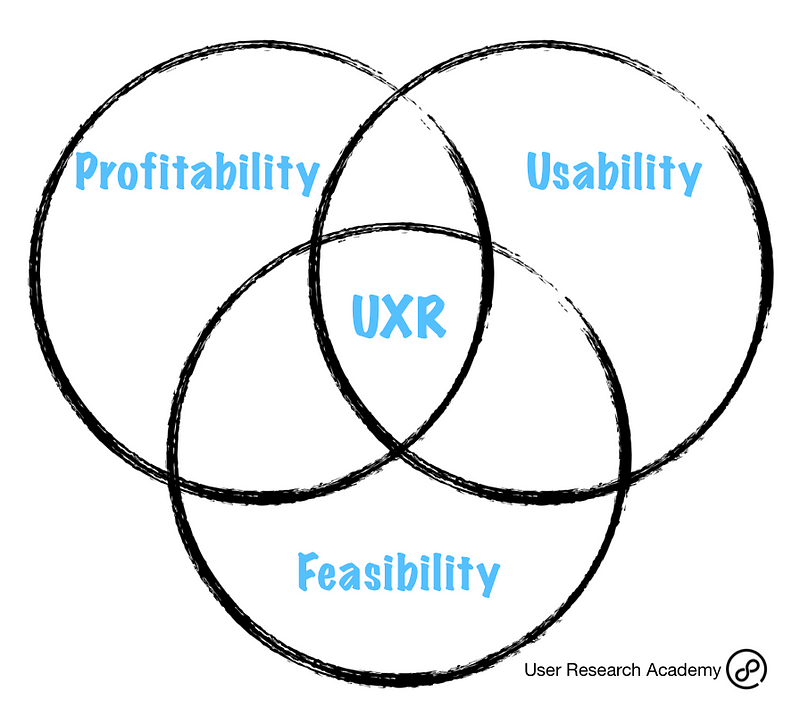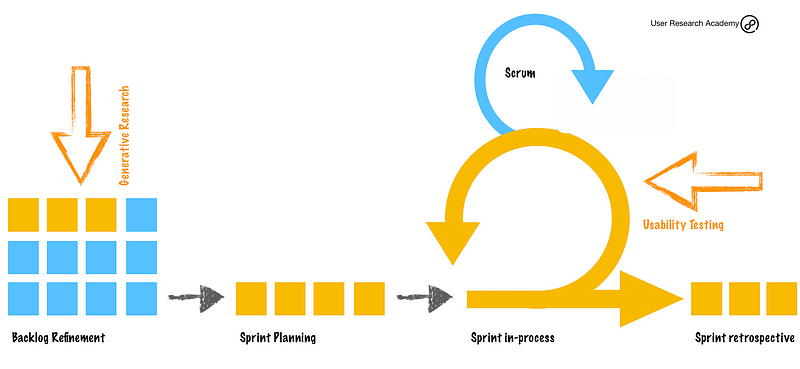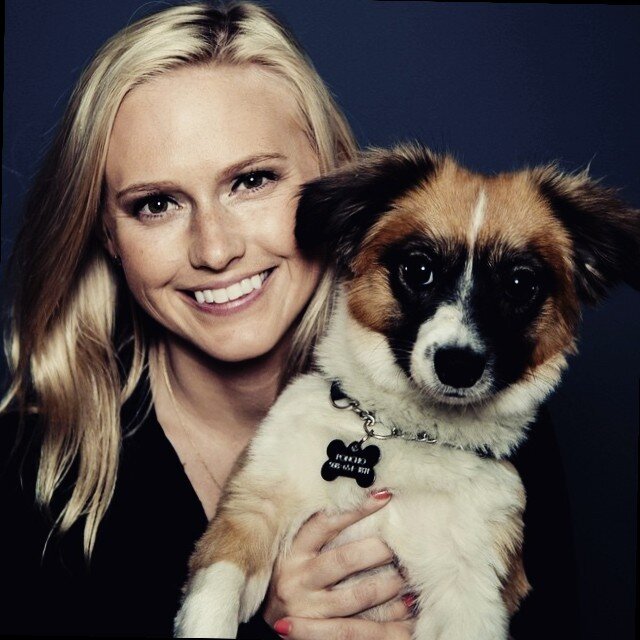Concepts, processes, and terminology — oh my!
The important terms and ideas to understand as a user researcher.

I recently ran a webinar on the topic of transitioning from academia to user research. A lot of my webinar focused on the importance of understanding the teams and business you will be working in as a user researcher. Although you can create a perfect portfolio piece in a silo, it is imperative to have the ability to relate to how an organization runs. I have spoken to many UX research recruiters and what they look for, in addition to user research skills, is how you would integrate into a team.
It is challenging to demonstrate how you would fit into a team without a general understanding of the basics of how tech teams work. And without the jargon or terminologies that are common in the tech and user research industries. I recommend doing research on how tech teams work, how businesses work, and how user research can fit into organizations. This will make you stand out to recruiters and companies, as someone with a real passion and motivation to go above and beyond.
A note about business and user research
The real truth of the matter is that companies exist to make money. I hate always coming back to this fact, but it is reality. And we have to face reality. The majority of what teams are looking to accomplish in an organization exists to make that company money. We need to be okay with this fact and understand where user researchers fit into it.
User research enables teams to make the best decisions. When organizations make better decisions, it tends to impact essential business metrics for a company, such as conversion rate, revenue, retention rate, acquisition rate. When teams make informed decisions that create a positive impact on users, they can better contribute to the mission of making the company more money. So teams rely on you for fast research to make these better decisions and positively impact the organization as a whole.

This is really important to understand because it gives you context into what your mission is on a team, and in a larger organization, outside of the day-to-day tasks.
Now on to teams…
Fitting into a team is essential for user researchers. It is crucial to understand every single role you will be working with. These internal stakeholders will become your internal users. They will be reaching out to you with questions and digesting the research you deliver. By understanding what they are trying to accomplish, you can better empathize with them and tailor research insights in a way that is optimized for their day-to-day. This also helps you figure out where and when user research is relevant in a project.
Ideally, as a user researcher, you work with all different roles and departments. However, the colleagues I have worked with the most are:
- UX/UI Designers
- Product Managers
- Developers
- VP- or C-Level Executives (from Product, Engineering, & others)
- Account Managers
- Customer Support
- Content marketing
The list could go on, but these are the major roles I have seen could benefit from user research. Take the time to learn what each of these people does and what they are trying to achieve. With this knowledge, you can positively impact their lives with research, which will lessen the need to beg them for buy-in.

Processes, Jargon, and Terminology
I will not go in-depth with each piece of jargon, terminology, and process, but will provide a list of which you can use to then deep dive into. This also does not include every process, piece of jargon, or terminology out there, but it is a starting point for learning about the different concepts user researchers commonly encounter.
Processes:
By understanding processes, you can understand where user research fits in.
- Agile
- Scrum
- Sprints
- Ceremonies
- Retrospectives
- Backlogs
- Standups
- Kick-offs
- Lean methodologies
- Waterfall
- Kanban
- Requirements
- Product management
- Product roadmaps
Concepts:
By knowing these concepts, you can make sure you are including them and doing robust research
- Business metrics (ex: click-thru rate, conversion rate, retention rate)
- OKRs / KPIs
- Product analytics, by using tools such as Google Analytics and Firebase
- Validating/disproving hypotheses
- Prototypes, wireframes
- ResearchOps
- Usability Metrics
- A/B testing
- Workshop moderation/facilitation
- Iteration
- Ideation
- Design thinking
- Recruitment
- QA (quality assurance)
- How Might We Statements/reframing solutions
Terminology & Jargon
With knowledge of terminology and jargon, you can talk more confidently with many different departments about all you can help them with
- Generative research (or discovery research, problem-space research)
- Usability testing
- Diary studies
- Card sorting
- Guerrilla research
- Jobs to be Done
- Heuristic evaluation
- Competitive analysis
- Affinity diagrams
- Participatory design
- Mind map
- Customer journey map
- Mental models
- Empathy map
- User scenarios
- Surveys
- Screener surveys (link coming)
- Personas (and here)
- User stories
- Implementation
- Deployment
- JIRA
I hope these are helpful in getting you started with learning how tech and product teams/organizations work in the real world, as well as important terms to understand as a user researcher. The more familiar you are with these, the more you can conjecture how you could impact an organization as user researcher.
Especially big thanks to Nielsen Norman Group and Atlassian for documenting so many of these terms, making my life easier when finding great links!
If you are interested, check out more free content and my offerings on www.userresearchacademy.com and join our slack channel
If you liked this article, you may also enjoy:
